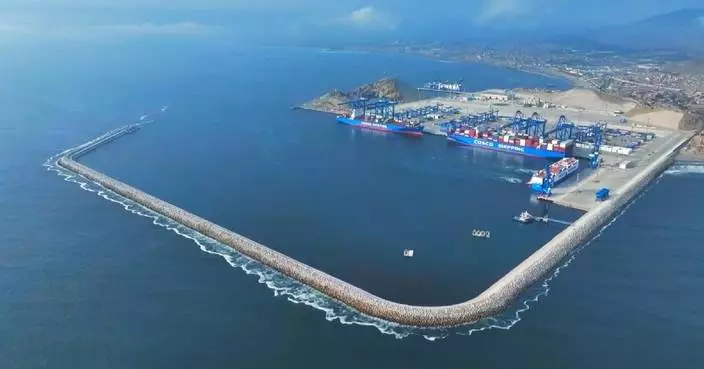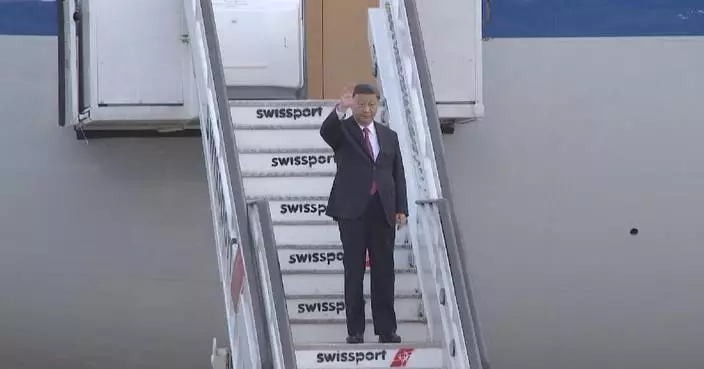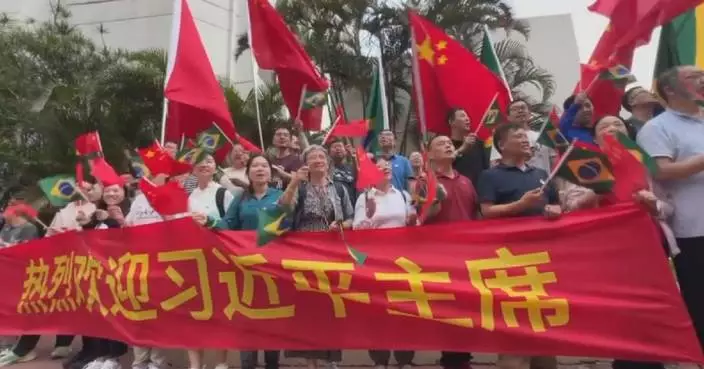China's newly-commissioned deep-ocean drilling vessel, Meng Xiang, is set to push the boundaries of scientific exploration into the deeper ocean with a maximum drilling depth of 11 kilometers.
As China's first homegrown deep-sea drilling vessel, it measures 179.8 meters in length and 32.8 meters in width, with a displacement of 42,600 tonnes. It boasts a range of 15,000 nautical miles, a self-supportability for 120 days, and a capacity to accommodate 180 people.
Commissioned in the southern Chinese metropolis of Guangzhou on Sunday, the vessel is the first in the world that integrates the functions such as deep-ocean scientific drilling, oil and gas exploration, and natural gas hydrate investigation and trial extraction.
"It is the first hydraulic lifting rig in the world that is capable of both oil and gas exploration and core sampling. It can drill to depths of 11,000 meters and is smart and highly integrated. It contains a core sample system designed by the Chinese people that handles the collecting tools, automated transfer, and storage. It also has versatile drill bits suitable for different rocks, from the soft rock to the hard rock in deep sea. Its capabilities meet the third generation, or the latest, international standards and requirements of 11,000 meters of ocean drilling. It is the most advanced and highly integrated drilling system," said Wang Mingxin, a member of the vessel's manufacturing supervision team of Guangzhou Marine Geological Survey under China Geological Survey.
The vessel also features nine advanced laboratories, covering areas such as geology, paleomagnetism, microbiology, and ocean science.
"The lab on the deep-sea drilling vessel of Meng Xiang is currently the largest one among scientific research ships. It covers almost all major disciplines in ocean science, including environmental monitoring of the atmosphere and water, basic geology, chemistry, and biological analysis," said Zhou Yang, a member of the vessel's manufacturing supervison team of Guangzhou Marine Geological Survey under China Geological Survey.
According to Zhou, researchers can analyze the distribution and species information of micro-organisms found in sediment or rock samples to determine the age of the strata and the sedimentary environment in the lab for microbiology.
Zhou also said that the laser microscope on the vessel has an optical resolution of over 1,000 times and can precisely capture two-dimensional and three-dimensional structural information of organisms.
"It is a mobile national laboratory in some way. For certain analyses that require timely processing, a fast and accurate analysis can be done on board, preventing from changes to samples, which may occur when transporting samples back to the shore. After the first two sea trials, it has been confirmed that the performance of all onboard equipment is much better than expected," said Zhou.
Traditionally, human activities and scientific exploration have been limited to the Earth's crust, which averages 15 kilometers in thickness. Beneath the crust lies the mantle, a crucial layer linking the surface to the core.
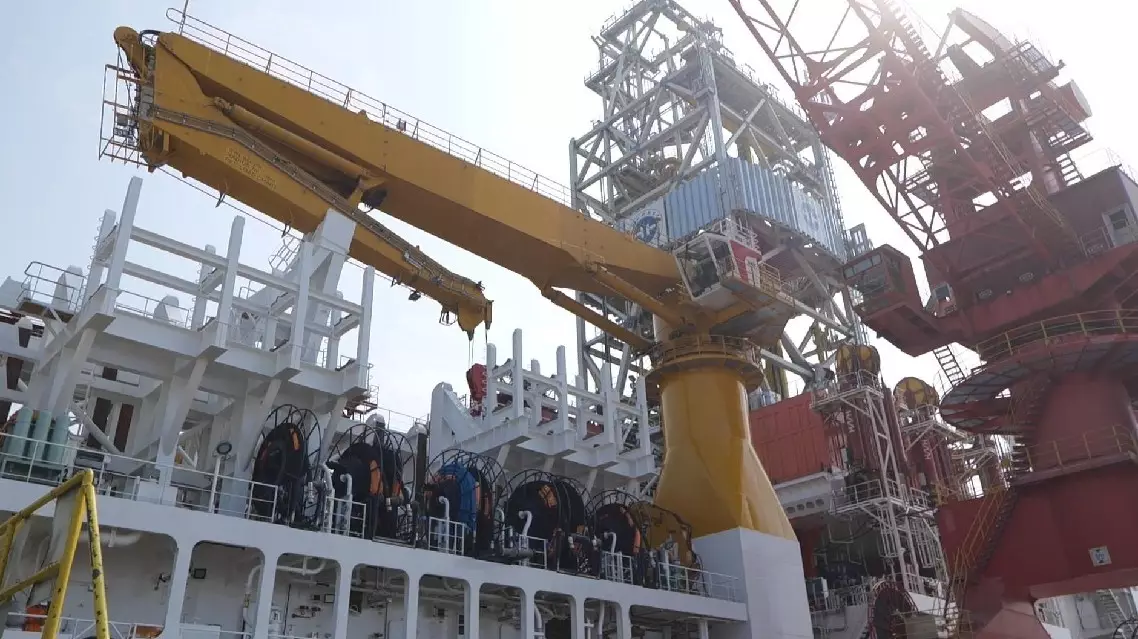
China's new deep-ocean drilling vessel revolutionizes deep-sea scientific research
Officials and analysts have hailed Chinese President Xi Jinping's speech at the 31st APEC Economic Leaders' Meeting for its message highlighting the importance of globalization, sustainability, inclusiveness and reciprocity.
Xi called on the Asia-Pacific region to shoulder the responsibilities of the times and jointly promote development while addressing the 31st APEC Economic Leaders' Meeting in the Peruvian capital Lima on Saturday.
In his speech, Xi pointed out that over the decades, APEC has been instrumental in leading the Asia-Pacific to great success in development, prosperity and connectivity, making the region the most dynamic economy and primary engine of global economic growth.
Xi also stressed that countries in the Asia-Pacific should carry greater responsibilities on their shoulders, and act in solidarity and cooperation to meet current global challenges and start a new era in Asia-Pacific development.
The message conveyed by Xi struck a chord with many Peruvians, who noted the importance of adhering to a multilateral mindset.
"In his speech, President Xi Jinping delivered a very interesting message -- only by benefiting the world can we benefit our own country. He conveyed a vision of a shared future for humanity. Today, we must work to create well-being for everyone," said Alejandro Indacochea, a Peruvian economist.
"President Xi has put forward some ideas that are new to the APEC this time. The first one, I think, is the idea of expanding the pie, that is, more actively linking the APEC area, which is the Pacific area, with the rest of globalization. This is precisely what strengthens globalization in terms of equalizing economies so that everyone benefits," said former Peruvian Foreign Minister Hector Bejar.
"So, I think it's like you are setting examples of where your bar is within sustainability practices and how to make these truly not just economically fulfilling for both sides, but also to make it sustainable. Because that's what really will lead to future generations," said Natalia, a media professional in Peru.
"China is a very important actor and member of APEC. And I think China contributes a lot to APEC. I think that China is also a very important soci-economic partner for many of the Latin American economies. So, we really look forward to continue developing new areas of cooperation on the basis of mutual benefits with China," said Renato Reyes, Peru's senior official to APEC.
Xi put also forward three proposals in his speech, including building an open and interconnected paradigm for Asia-Pacific cooperation; making green innovation a catalyst for the Asia-Pacific; and upholding a universally beneficial and inclusive vision for Asia-Pacific development.
William Jones, the Washington bureau chief of the U.S. publication Executive Intelligence Review, highlighted Xi's emphasis on ensuring mutual benefits for all, and said these proposals can deliver positive outcomes not just for Latin America but for the whole world.
"I think they're all very good, and the third point that he made, of course, was the issue that it had to be mutually beneficial. And this of course has been always an element in China's foreign policies specifically connected to the Belt and Road Initiative, which is also gaining adherence in Latin America. And I think the presence of China in Latin America at this point has created a certain sense of optimism by 2026 that the route, the pathway that China has charted out is a successful pathway not only for China but also for the world," he said.
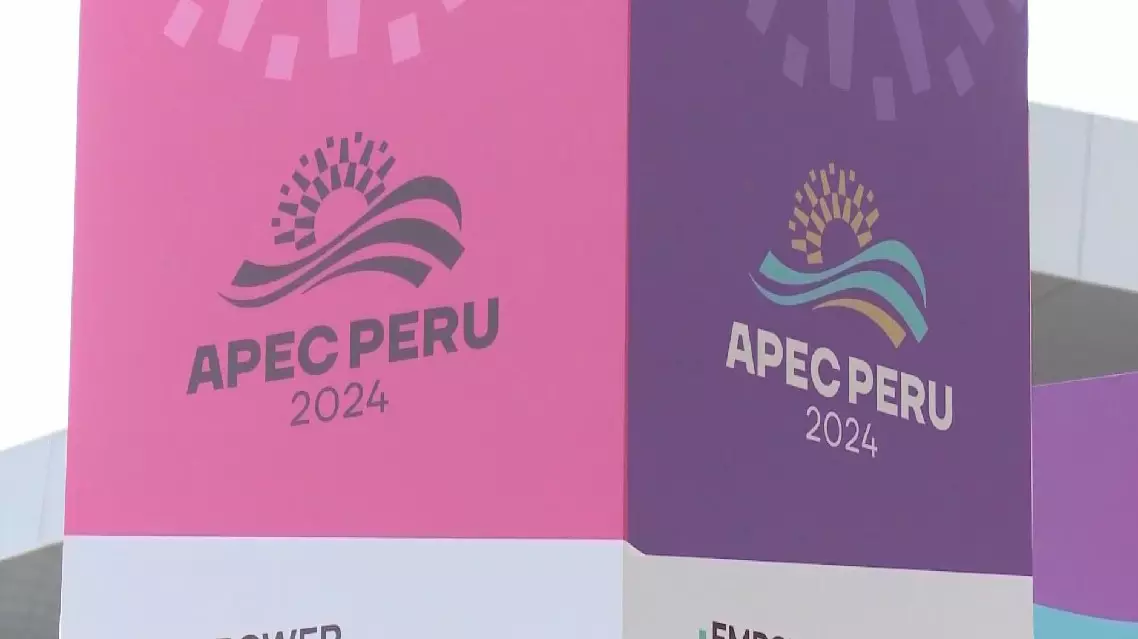
Xi's APEC speech hailed for safeguarding globalization, inclusiveness






